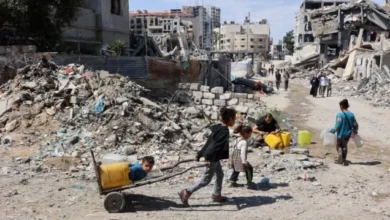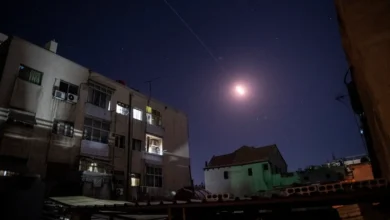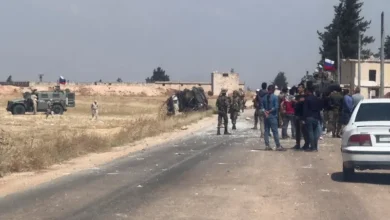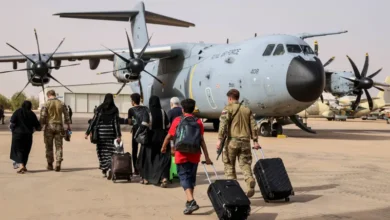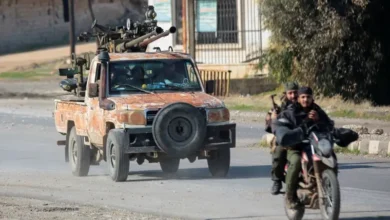Israel threatens to step up Gaza strikes

Israel warned Wednesday that it will intensify its strikes in Gaza if Hamas keeps up its rocket fire, as Palestinian rescuers reported dozens of deaths from Israeli strikes on the first day of the New Year.
Over the past week, Palestinian militants have repeatedly fired rockets at Israel, particularly from northern Gaza, where the Israeli military is conducting a major offensive.
The rockets have caused little damage and have been fired in far smaller numbers than in the early stages of the war, but they have been a political blow for the Israeli government after nearly 15 months of fighting.
“I want to send a clear message from here to the heads of the terrorists in Gaza: If Hamas does not soon allow the release of the Israeli hostages from Gaza… and continues firing at Israeli communities, it will face blows of an intensity not seen in Gaza for a long time,” Defense Minister Israel Katz said.
His warning came after a visit to the Israeli town of Netivot, which was recently targeted by rocket fire from nearby Gaza.
Militants are still holding 96 hostages seized during their October 7, 2023, attack on Israel, and successive rounds of negotiations for their release and a ceasefire have all failed.
Israeli strikes continued across Gaza on Wednesday.
“The world welcomed the New Year with celebrations and festivities, while we witnessed 2025 begin with the first Israeli massacre in the town of Jabalia just after midnight,” Gaza’s civil defense agency spokesman Mahmud Bassal said.
“Fifteen people were martyred and more than 20 were injured” in the strike on a house where displaced people were living, he said.
The Israeli military told AFP it had “eliminated” several Hamas militants operating “within a terrorist structure” in Jabalia, without giving a toll of its own.
Since October 6, the military has been conducting a major land and air offensive in northern Gaza, particularly targeting Jabalia and its adjacent refugee camp.
The military says the operation is aimed at preventing Hamas militants from regrouping in the area.
But on Monday UN human rights experts said the “siege” appears to be part of an effort “to permanently displace the local population as a precursor to Gaza’s annexation.”
Bassal said those living in the house were members of the Badra, Abu Warda and Taroush families who had sought refuge there.
Nearly all of Gaza’s 2.4 million people have been displaced at least once since the war began.
“The house has turned into a pile of debris,” said Jibri Abu Warda, a relative of the victims.
“It was a massacre, with body parts of children and women scattered everywhere. They were sleeping when the house was bombed,” Abu Warda said.
“No one knows why they targeted the house. They were all civilians.”
Fear of cold
Women wept over shrouded bodies in the morgue of the Al-Mamadani Hospital, some of them those of children.
“We don’t want aid, we want the war to stop. Enough with the bloodshed! Enough!” said Khalil Abu Warda, another relative.
Over the weeks, the Israeli assault in Jabalia has expanded across the north of the territory.
On Friday, the military raided Kamal Adwan Hospital, emptying it of its last staff and patients.
The army said it had killed more than 20 suspected militants and detained more than 240, including the hospital’s director, Hossam Abu Safiyeh, it described as a suspected Hamas militant.
“Around me there’s nothing but rubble and destruction. People don’t know what to do, don’t know where to go. And they don’t know how to survive,” said Jonathan Whittall, a UN aid official in a video released after he visited the Indonesian Hospital in north Gaza.
The Israeli military has repeatedly accused Hamas of using hospitals as command centers. Hamas denies the allegation.
A report published Tuesday by the UN Human Rights Office said “insufficient information” has been made available to substantiate “vague” Israeli accusations of military use of hospitals.
Two further Israeli strikes in Gaza on Wednesday killed another 10 people, rescuers said.
The bombardment piled further misery on displaced Gazans already struggling to keeping warm amid wintry conditions.
“For three days, we haven’t slept out of fear that our children would fall sick because of the winter, as well as fear of missiles falling on us,” said one displaced woman, Samah Darabieh.
The war in Gaza began when Hamas attacked Israel on October 7 last year, resulting in the deaths of 1,200 people, mostly civilians, according to Israeli tallies.
Israel’s retaliatory military campaign has killed at least 45,553 people in Gaza, most of them civilians, according to figures from the Gaza health ministry which the United Nations considers reliable.

